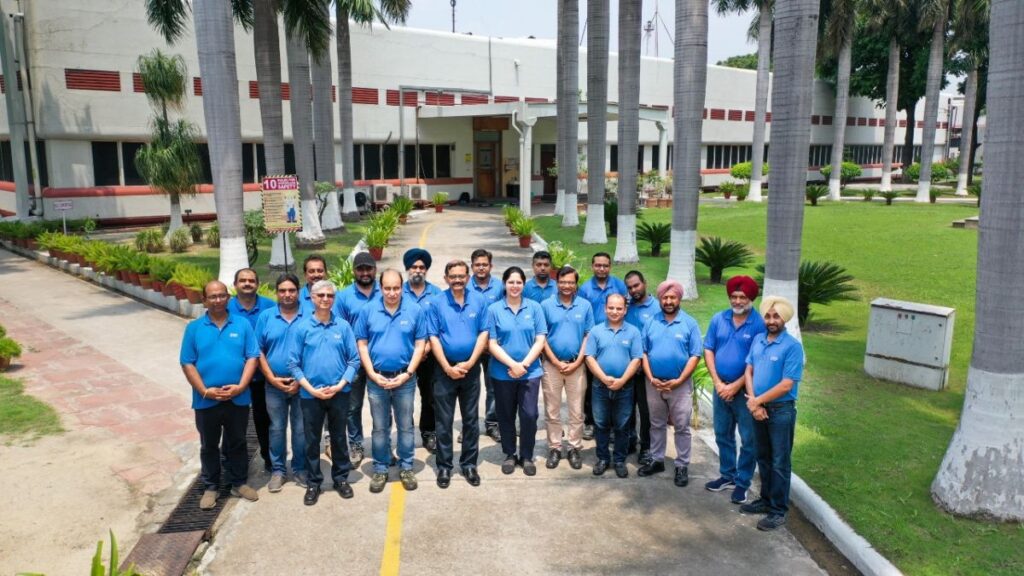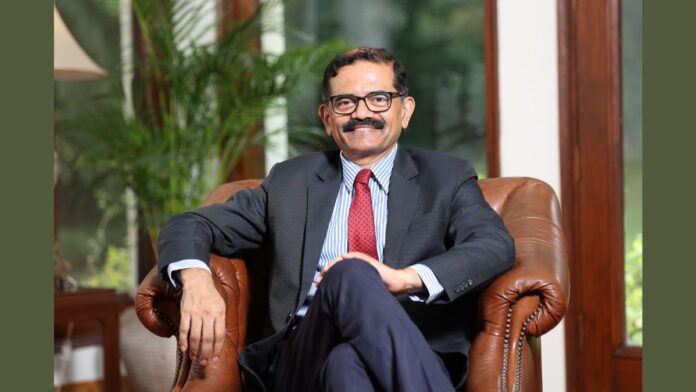Manohara Kumar is a dedicated and accomplished leader who is currently serving as the CEO, Whole Time Director, and Board member of Toppan Speciality Films (TSF), formerly known as Max Speciality Films. He began his journey with TSF over 30 years ago as a trainee and has since then played a pivotal role in the company’s growth and success. He has held various positions throughout his career, displaying a keen ability to learn, adapt, and lead by example. Manohara Kumar’s (MK) contribution has driven innovation, ensured top-notch product quality, enhanced operational efficiency, and expanded the company’s market reach. Leading TSF, his efforts have been directed towards making TSF a global leader in speciality films. Recent recognitions at national and international levels like Great Place To Work, Golden Peacock awards in Safety and Quality, Product Development awards, and Sedex and Ecovadis Certifications are perfect indicators that TSF as a family is growing in the right direction.
LFAM (Labels Flexibles and More): Could you briefly give an overview of TSF’s most recent innovation?
MK: Innovation for us is changing the mindset of the people within TSF and also for customers and suppliers. Our approach to engaging the workforce in innovation is one of the critical factors for us being certified as a Great Place To Work. We continuously focus on ensuring that our product developments and process upgrades are meaningfully unique and aligned with our sustainability commitment. Our recent product developments like Biodegradable and transparent barrier films supported by our state-of-the-art R&D centre with highly qualified scientists are classic examples of our approach. Such innovations not only enhance the functionality of our films but also ensure that we focus on delivering solutions proactively to our customers. We work closely with brands to create innovative solutions that meet sustainability targets. Besides product development, we drive innovation as a culture in everything we do in our daily routine work. We also encourage risk-taking to promote out-of-the-box thinking.
LFAM: What is your prediction about the films and packaging industry in India?
MK: The film and packaging industry in India is at a transformative stage. There is a growing demand for high-quality, sustainable packaging solutions. However, I believe the upcoming years will be challenging. Considering the expected growth in BOPP capacity in India, there will likely be a disruption in the balance between demand and supply. This is expected to exert pressure on profit margins. India’s exports will have short-term challenges due to ongoing geo-political situations. India’s rapid urbanization is a catalyst for enduring growth, propelled by increasing per capita consumption, a shift towards packaged food, and the rising participation of women in the workforce. Internationally, there’s a growing preference for Indian manufacturers, which is a testament to our unwavering commitment to excellence, reliability, and operational efficiency. This is largely attributed to our competitive edge in lower electricity costs, affordable labor, and cost-effective polymers.

LFAM: Please elaborate on your expansion plans in India.
MK: Our growth strategy is centred on increasing our production capabilities, mitigating risks associated with a single location, and broadening our range of sustainable products. Back in 2018, TSF launched its most extensive BOPP line to offer our customers sustainable options. In 2022, Toppan Specialty Films (TSF) started a dedicated plastic recycling facility in Punjab. The plastic waste recycling plant is spread across 2 acres of land and has a customized cleaning and processing plant with 100% wastewater recycling. We also entered into masterbatch production and commissioned a CPP line. Furthermore, we’re gearing up to commission a new hybrid BOPP/ BOPE line in 2025. There are many other strategic initiatives in the pipeline which the world will witness in the next 5-7 years.
LFAM: The demand for sustainable products is rising, and packaging manufacturers and brands are also taking sustainable initiatives. How do you foresee the sustainable packaging industry?
MK: The shift towards sustainable packaging is inevitable and rapidly gaining momentum. Brands, as well as consumers, are increasingly mindful of their environmental footprint. This awareness is driving the demand for sustainable packaging solutions. Recognizing this, we’ve ensured that this trend is a key focus in our product development strategy. TSF has implemented several initiatives to promote ‘circular economies’ and provide customers with a wide range of recyclable and mono-material PP films. We are also partnering with many Industry experts to drive this initiative.
LFAM: How challenging is it to achieve sustainable goals in the plastic packaging industry?
MK: Achieving sustainability goals presents challenges but opens up many opportunities for growth and innovation. For us, it’s about striking the right balance between cost-effectiveness and eco-friendly practices. We’re also deeply invested in managing the sustainability of our supply chain and constantly exploring technological innovations, especially in developing sustainable solutions. We aim to reduce carbon emissions by 32% by 2030 and achieve net neutrality by 2050. TSF’s EcoVadis Gold status signifies that we are among the top 5% of organizations when assessing the quality of a company’s sustainability management system. We also won the MQH Best Practices Competition (Environment category) by IMC Ramkrishna Bajaj National Quality Award Trust, a fitting acknowledgement of our collaborative team endeavours towards the environment. I believe strict enforcement of the single-use plastic ban is essential for successful waste collection and segregation. The industry should come together to define the right sustainable solutions. Brands should start identifying and investing in players who are not focused on greenwashing.

LFAM: How does Toppan capitalize on the opportunity of the single-use plastic ban and the implementation of EPR?
MK: The TSF recyclability thrust is based on the “ease of recyclability” philosophy. Recycling plastic waste faces many challenges, one of them being the inability to recycle multilayer films in packaging applications where the individual layers are composed of different materials. Developing mono-material solutions helps in increasing the value of the waste stream. Toppan has always focused on staying ahead of the curve. Our proactive approach has always helped us foresee sustainable risks; hence, we are usually ready with solutions. As shared earlier, we also have a separate mechanical recycling unit. We are the first in India to develop biodegradable films that have qualified the government’s laid down rules. We are in the last stages of getting clearance. Hence, we stand by our commitment towards our customers by providing the right solutions at the correct times.
The future of packaging is at the intersection of technology, innovation and sustainability. India is currently establishing itself as one of the significant contributors to the world economy. For us at TSF, product differentiation becomes more emphasized with the addition of CPP, masterbatch and BOPE in our pipeline. However, we must also be cognizant of potential challenges such as political and economic instability, increasing global financial costs, and disruptions in the supply chain, which could pose significant risks to our business. Hence, all Indian players should ensure proper risk assessment and mitigation to ensure that service and operational performances consistently improve and that we continue contributing to sustainable growth.












